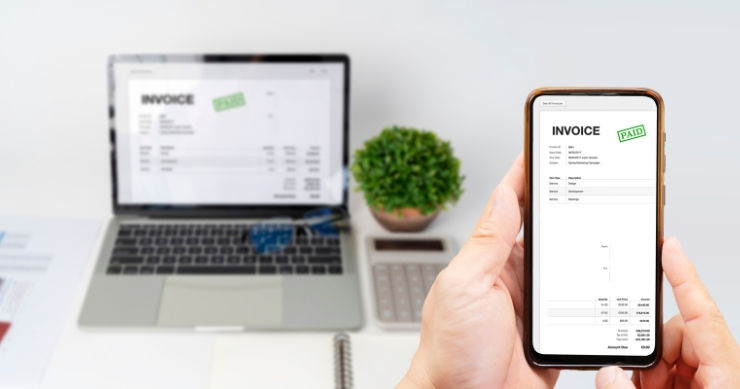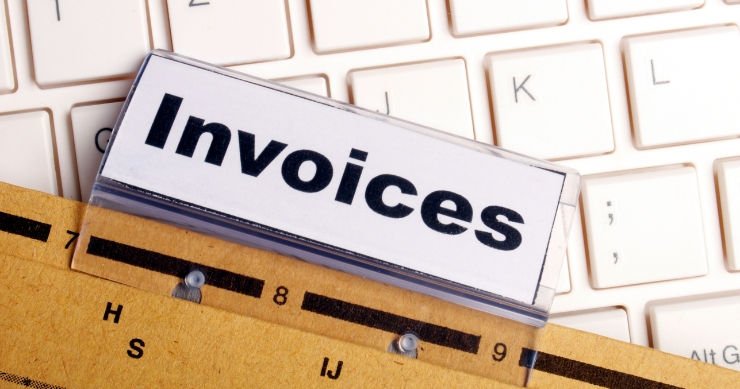What Is The Difference Between Billing And Invoicing
- Leonie Martin

- Aug 15, 2025
- 5 min read
Running a business means dealing with payments, customers, and financial records. Two terms that often come up are billing and invoicing. At first glance, they may look the same, and many people use them interchangeably. But in business, billing and invoicing have different roles, and understanding the difference helps owners manage money more effectively.
This guide explains what billing and invoicing mean, how they differ, and why both are important for smooth financial operations. We’ll also look at how services like Accounts Receivable Management and the Best Payroll Management Services connect with these processes.
What Is an Invoice

An invoice is a document a business sends to a customer after providing goods or services. It lists the details of what was sold, the price, any taxes, and the total amount payable. Invoices also show payment terms, such as “due in 30 days.”
Think of an invoice as a request for payment. It is formal, recorded, and part of the business’s official accounts. Invoices are crucial for bookkeeping and tax purposes because they prove income earned.
What Is a Bill

A bill is similar to an invoice but is usually more immediate. It’s the document you receive when you go to a café, buy groceries, or pay for a haircut. A bill asks for instant payment rather than giving extra time.
Bills are often shorter and less detailed than invoices. They usually show the amount due straight away and are paid on the spot—by cash, card, or other methods.
The Key Differences Between Billing and Invoicing
While both relate to payment, there are clear differences:
Timing: An invoice often allows delayed payment, while a bill asks for immediate settlement.
Formality: Invoices are formal documents used in accounts, while bills are simpler payment notices.
Use case: Businesses use invoices when offering credit terms, while bills are more common in retail or service settings where payment is upfront.
Recordkeeping: Invoices are vital for compliance, taxation, and reporting. Bills are mostly for customer awareness at the point of sale.
Why Businesses Need Invoices

For many businesses, invoices are more than just requests for payment. They are part of proper financial management. A clear invoicing process:
Ensures customers know what they owe.
Creates legal proof of a transaction.
Helps track overdue payments.
Supports Accounts Receivable Management by monitoring who has paid and who hasn’t.
Provides evidence for tax reporting.
Without invoices, businesses risk late payments, disputes, and difficulties proving income.
Why Businesses Use Bills
Bills are convenient for quick transactions. They simplify the payment process for both business and customer. For example, restaurants use bills so customers can see their total and pay straight away. Bills are not usually tracked in the same way invoices are, but they help businesses manage daily operations efficiently.
How Billing and Invoicing Work Together

Though different, billing and invoicing often overlap. Some businesses issue bills at the point of sale but also create invoices for their records. For example, a medical clinic might give patients a bill after an appointment but later issue an invoice for insurance purposes.
For smooth operations, businesses need systems that handle both billing and invoicing in an organised way.
The Role of Accounts Receivable Management
Managing invoices and payments is part of a broader process called Accounts Receivable Management. This is the system businesses use to track money owed to them, follow up on overdue payments, and keep cash flow healthy.
When invoices are not managed properly, businesses may face late payments, bad debts, and financial stress. Good accounts receivable practices include:
Sending invoices promptly.
Setting clear payment terms.
Following up on overdue accounts.
Using software to track payments.
By linking invoicing to accounts receivable, businesses ensure they are not only sending documents but also getting paid on time.
How Payroll Links to Billing and Invoicing

At first, billing and invoicing might not seem connected to payroll. But when we look closer, the link becomes clear. A business that struggles with late payments may not have enough cash flow to pay staff on time. This is where the Best Payroll Management Services come in.
Efficient payroll services ensure employees are paid correctly and on schedule, even when invoicing cycles are delayed. By combining strong invoicing practices with reliable payroll systems, businesses can balance customer payments with staff obligations.
Technology and Modern Tools
Modern accounting software makes it easier to manage both billing and invoicing. Systems like Xero, MYOB, or QuickBooks allow businesses to:
Create invoices automatically.
Send reminders for overdue accounts.
Record bills instantly at the point of sale.
Integrate invoicing with payroll and tax reporting.
These tools save time, reduce errors, and keep records organised for compliance and decision-making.
Why Understanding the Difference Matters

For small and medium businesses, knowing the difference between billing and invoicing can make a real impact. Using the right process at the right time means:
Faster payments.
Stronger customer relationships.
Better tax compliance.
Clearer financial records.
Healthier cash flow.
Confusing the two can lead to mistakes, such as missed tax deductions or unpaid invoices.
Best Practices for Invoicing
To get the most from invoicing, businesses should:
Be clear and detailed: Include descriptions of products or services, dates, amounts, and payment terms.
Send invoices promptly: Don’t delay after delivering goods or services.
Follow up politely: Remind customers before and after due dates.
Offer flexible payment options: Make it easy for customers to pay.
Keep copies: Store invoices safely for future reference.
Best Practices for Billing
Billing is usually simpler, but it still requires attention:
Ensure accuracy: Customers need confidence that their bill is correct.
Be transparent: Show all items or services included in the charge.
Provide payment options: Card, cash, and digital methods make it easier for customers to settle immediately.
Use technology: Digital billing systems reduce mistakes and speed up service.
How Bookkeepers and Accountants Help

Many businesses turn to bookkeepers or accountants for help with billing and invoicing. These professionals not only ensure accuracy but also integrate billing records with overall accounts. They prepare reports, manage tax compliance, and support strategic planning.
With expert help, businesses can link their billing, invoicing, and payroll systems into one smooth process.
Billing and Invoicing in Different Industries
The way businesses use billing and invoicing often depends on their industry:
Retail: Mostly billing, with customers paying on the spot.
Construction: Heavy reliance on invoices with staged payments.
Healthcare: Both billing for patients and invoicing for insurers.
Professional services: Invoicing is common, often with extended terms.
Each sector adapts these processes to fit customer expectations and cash flow needs.
The Impact on Cash Flow
Ultimately, billing and invoicing are about managing money coming in. Late or missing invoices can choke cash flow, while poor billing systems can frustrate customers. Healthy cash flow allows businesses to cover costs, invest in growth, and pay staff on time.
This is why many owners link invoicing with Accounts Receivable Management and rely on the Best Payroll Management Services to maintain stability.
Conclusion
Billing and invoicing may look similar, but in practice, they serve different purposes. A bill is often immediate, asking for payment on the spot, while an invoice is formal and allows time for payment. Together, they ensure businesses get paid fairly and on time.
By understanding the difference, setting up strong systems, and using professional support, business owners can protect cash flow, build trust with customers, and keep their operations running smoothly. In the long run, good billing and invoicing habits are not just about paperwork—they are the foundation of a strong and successful business.


